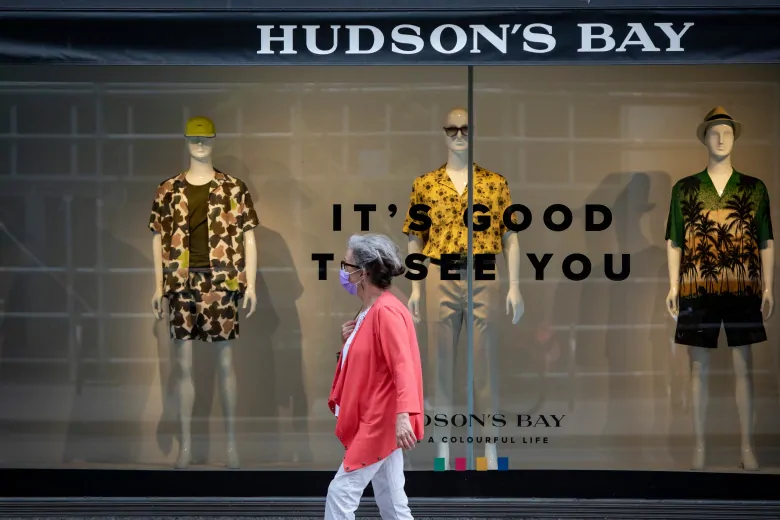As more regions across the country adopt mandatory masking policies in an effort to minimize the spread of COVID-19, some anti-masking groups are joining forces with anti-vaccination proponents and adopting their techniques to spread misinformation and amplify their message.
As more regions across the country adopt mandatory masking policies in an effort to minimize the spread of COVID-19, some anti-masking groups are joining forces with anti-vaccination proponents and adopting their techniques to spread misinformation and amplify their message.
The similarities between organized anti-masking and anti-vaccine movements are striking, said Maya Goldenberg, an associate professor of philosophy at the University of Guelph specializing in vaccine hesitancy.
At least one anti-masking group, Hugs Over Masks, actively partners with Vaccine Choice Canada, one of the country’s most prominent anti-vaccination organizations.
Vladislav Sobolev, the anti-masking group’s founder, has repeatedly praised the anti-vaccination group on social media and during protests.
Sobolev also told CBC News that high-profile U.S. anti-vaccination advocate Sherri Tenpenny, an osteopath who wrote Saying No To Vaccines, is providing online leadership training to his group.
Tenpenny, along with other anti-vaccination advocates in the U.S. and Canada, have embraced the anti-masking cause and opposed COVID-19 lockdown measures.

Many Canadians who don’t want to wear masks aren’t opposed to vaccines, but the fact that anti-vaccination groups are involved in the relatively new anti-masking movement of concern to many health experts.
Despite well-established evidence that vaccines are safe and effective, anti-vaccination groups have become savvy at spreading misinformation that leads people to distrust medical guidance — which can have dire consequences during a pandemic.
‘Harmful outcomes’
“It disturbs me when I see people acting on information that I’m quite sure is not only incorrect, but potentially misleading and potentially leading to harmful outcomes,” said Dr. Matthew Oughton, an infectious disease specialist at McGill University.
As a practising physician at Montreal’s Jewish General Hospital, Oughton has seen first-hand the toll COVID-19 takes. Close to 9,000 people — largely seniors and people with underlying medical conditions — have died in Canada from the virus.
WATCH | Masks now mandatory in much of England:
Face coverings are now required inside most enclosed public spaces in England. England is also offering most people a free flu vaccine to guard against overwhelming hospitals this flu season. 3:31
Although scientists are continuing to learn about the novel coronavirus, it appears that people with COVID-19 can be most infectious before they show any symptoms, Oughton said.
That’s different from many other viruses, including the first version of SARS. It’s a key reason why it’s important for people to wear masks — even if they feel perfectly healthy — when physical distancing isn’t possible to prevent transmission, medical experts say.
Mistrust of health authorities fuels misinformation
Mistrust of government and scientific authorities are key characteristics among both anti-vaccination and anti-masking advocates, Goldenberg said.
“When you don’t trust the sort of basic infrastructure that’s supposed to support public well being, you’re going to come up with all kinds of tactics to try to resist it,” she told CBC News.
Those tactics include the “downplaying of how bad the infectious disease is,” Goldenberg said.
Before COVID-19, anti-vaccination groups were making false claims that measles — a serious, vaccine-preventable disease — wasn’t a major threat. A consequence of that misinformation was an increase in vaccine hesitancy, leading to a resurgence of measles cases in Canada, where it had been declared eliminated in the late 1990s.
Similarly, during the COVID-19 pandemic, anti-vaccination and anti-masking groups have claimed that coronavirus isn’t any more dangerous than other diseases, such as the flu. This is part of an effort to falsely convince people that public health measures to stop the spread of infection — from the development of a vaccine to physical distancing and wearing a mask —

